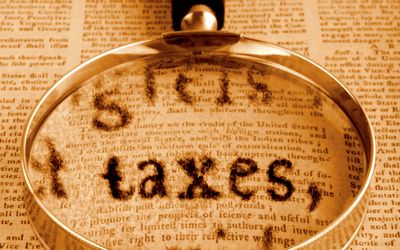THE tax team at professional services firm Deloitte is betting on an increase in personal taxes, especially for wealthier taxpayers, and the start of a carbon tax, as Finance Minister Pravin Gordhan looks for additional revenue in next month’s budget.
It suggests, too, that the minister could introduce a levy on company turnovers, similar to the transitional levy implemented by the apartheid government in the 1980s that was abolished by the democratic government in the 1990s on the advice of the Katz commission on tax.
Deloitte was out of the starting blocks early with tax predictions at a pre-budget briefing on Wednesday.
Head of taxation services Nazrien Kader said it could be a watershed year for tax hikes. "We are sitting on the edge of our seats," she said. "We have never before had this level of interest in a budget — and South Africans have never expected this much from a minister of finance."
With economic growth slowing, former finance minister Nhlanhla Nene had already revised down the current fiscal year’s revenue estimates by R7.6bn.
Mr Gordhan is expected to have an even wider revenue shortfall to close, although Deloitte director Severus Smuts predicts that the fiscus might benefit from higher-than-budgeted value-added tax (VAT) collections as a result of the tax on e-commerce transactions that was implemented from June 2014.
Several foreign suppliers of online goods and services such as music have now registered for VAT.
The Davis committee on tax has said raising the VAT rate would be the most effective way of bringing in substantial extra revenue with the least impact on the economy.
However, a VAT rate increase would be extremely sensitive.
The Deloitte team does not expect that VAT will be increased this year. Rather, it expects Mr Gordhan to look again to a tax on individuals even after the personal income tax rate was hiked by one percentage point in last year’s budget.
Ms Kader does not expect a "wealth tax" as such. However, she said a "super-tax bracket" was very possible, and the marginal rate of tax for individuals might be lifted to late 1980s’ levels of 43%-45%. She also saw scope to increase the proportion of capital gains subject to tax.
However, she said: "Any suggestion of increasing the individual rate would have to be accompanied by some commitment by government to monitoring its own spending."
In a year in which many companies’ profits are nonexistent, or too low to tax, it is also possible that the government could look to implement a special levy, of possibly 5%-7%, for companies with annual turnovers above a particular threshold, of say R1bn. It might be a levy tied to a particular purpose.
Deloitte also expects the minister to announce that the carbon tax will finally be implemented on the due date of 2017 — but with a 100% tax-free threshold in line with the Davis tax committee’s recommendations.
That would mean the new tax, which business strongly opposes, would bring in no revenue initially, but implementation would allow time for it to be phased in and its effect on the economy assessed.
Increases in "sin taxes" on alcohol and tobacco are expected to be well above inflation.
Deloitte tax director Billy Joubert said one important issue was the future of the Davis tax committee that Mr Gordhan established in 2013 and which had been expected to complete its work in three years.
It has already issued nine reports and its work is filtering through to tax legislation. But the question is whether its scope will be extended and it will become "a long-term tax policy think-tank". Mr Joubert said in a period of tax reform, it would be good that tax policy formulation be done by a broader range of experts, as the Davis committee was doing.

























Change: -0.47%
Change: -0.57%
Change: -1.76%
Change: -0.34%
Change: 0.02%
Data supplied by Profile Data
Change: -1.49%
Change: 0.08%
Change: -0.47%
Change: 0.00%
Change: -0.04%
Data supplied by Profile Data
Change: -0.34%
Change: 0.03%
Change: -0.10%
Change: -0.22%
Change: -0.69%
Data supplied by Profile Data
Change: -0.28%
Change: -1.15%
Change: -0.07%
Change: -1.21%
Change: -0.22%
Data supplied by Profile Data